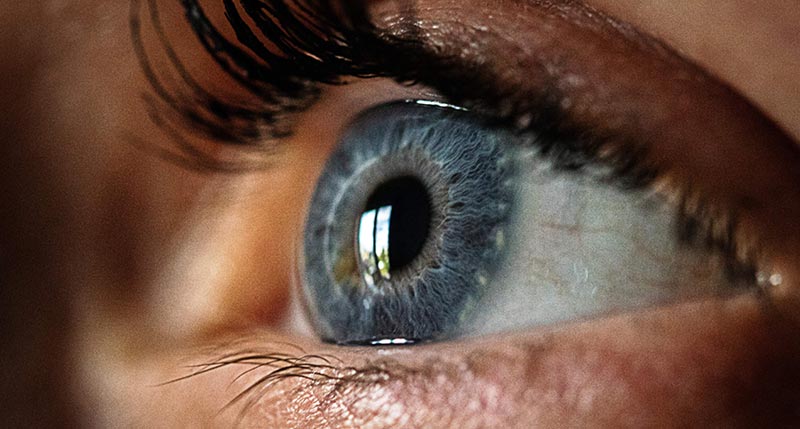May is Healthy Vision Month, a time when we focus on steps we can take today to keep our vision healthy for a lifetime. Sunglasses are an essential tool in your long-term eye health toolkit, and we recommend that you wear them every time you go outside, in every season. Yes, even if it’s cloudy.
The weather’s getting warmer (and pollen season is ending), inviting us to spend more time outside. When you do step out—whether it’s for 15 minutes or the entire day—be sure to wear high-quality sunglasses that block 100% of the sun’s harmful UV rays. And it’s not just because your sunnies complete the outfit or look cool.
Here are the top 5 reasons to wear high-quality sunglasses this season—and every season.
- UV Protection, Short-Term Benefits
You wouldn’t spend time in the sun without protecting your skin with sunscreen, but many people don’t think about protecting their eyes. Fact: your eyes can get sunburned! And it hurts! Spending hours in the sun without the UV protection high-quality prescription or non-prescription lenses provide can lead to overexposure to the sun’s burning UV-B rays. If your eyes get sunburned, you may experience severe eye pain, a burning sensation, blurred vision and light sensitivity. Avoid wearing contact lenses if you suspect your eyes are sunburned, and call us for proper medical attention to this serious condition.
- UV Protection, Long-Term Benefits
The reason UV exposure is so harmful to your eyes is the long-term repercussions of accumulated UV damage. The conditions resulting from long-term UV exposure include cataracts, glaucoma, macular degeneration and cancer. When we see patients who are experiencing those challenges with their eyes, they often tell us they wish they could go back in time and wear high-quality sunglasses daily to help prevent these potentially sight-stealing diseases. UV damage is cumulative and irreversible. So the only way to avoid it is to prevent UV exposure by wearing sunglasses that block the sun’s damaging rays. Wear your sunglasses, every day!
- Protect Eyes From Wind, Sand, Dust and Pollen
It’s a jungle out there. When you step out into your daily adventure, you never know what conditions you’ll confront. Extreme wind can be drying to the eyes, causing irritation, and can also blow debris such as dirt, sand or pollen into sensitive eye tissues. We don’t have to tell you how much it hurts to have even a tiny speck of lint or dust in your eye. Sunglasses are your first line of protection against blowing debris.
- Eliminate Glare and Improve Your View
People whose eyes have a low tolerance for sunlight know the strong impact of wearing high-quality sunglasses to eliminate glare and improve their visual acuity. Their vision is uncomfortable in strong sunlight, so they opt for sunglasses (and likely, a hat!). After all, it’s no fun to squint or “salute” your way through a kids’ soccer or baseball game! But people with a higher tolerance for sunlight may not realize the benefits of improved vision with sunglasses. Your sunnies can eliminate glare through a polarization coating. Different color lenses can improve your vision while driving on cloudy days or participating in various outside sports. And when you’re spending time on a lake or ocean (or in the snow), you’ll be able to see more clearly without glare from the sun’s reflection bouncing off horizontal surfaces.
- Look and Feel Your Best!
There’s no arguing the point: Sunglasses can both protect your long-term eye health AND top off an outfit in style. When you’re wearing new sunglasses, you not only see well, you look good! With exciting new styles arriving in our optical department each week, we can help you find a great pair of frames that look good and help you feel good while protecting your vision for now and the future.
Call us today to make your annual comprehensive eye exam appointment, and try on a new pair of sunglasses while you’re here!





